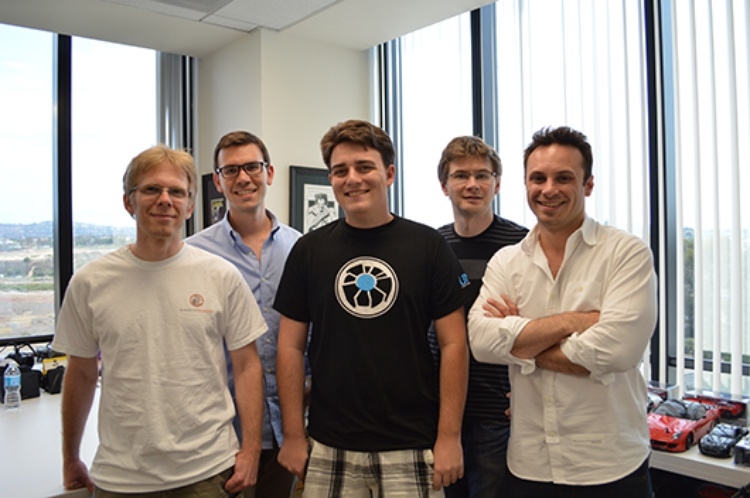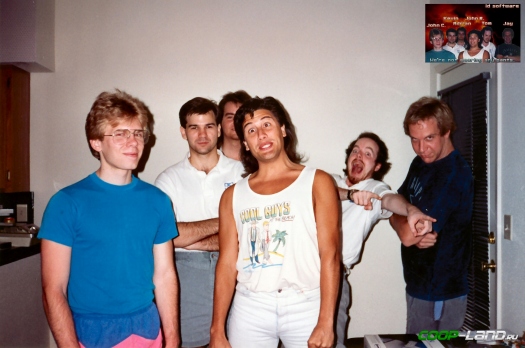
John Carmack, known for his work on virtual reality projects as well as classic games like Doom and Quake, is stepping down as a technical consultant at Meta.
Carmack first joined Oculus as CTO in 2013, and in 2014 Meta (then Facebook), which acquired the startup.

In 2019, he left his role as CTO at Oculus to become a virtual reality consultant for the social media giant, devoting only 20% of his time to Meta.
Course
WOMEN IN LEADERSHIP
Learn how to maintain work-life balance from a top executive with experience at NPR, Microsoft, IBM, and Amazon Alexa.
REGISTER!
I am continuing as a consultant with Meta on VR matters, devoting about 20% of my time to it.
— John Carmack (@ID_AA_Carmack) August 19, 2022
Back in 2019, Carmack said he would be working on artificial intelligence, and it wasn’t until August of this year that it turned out that the words about AI were not referring to Meta, but to his new startup called Keen Technologies.
Now on his Facebook page, Carmack announced that he is leaving the company completely and it seems that the ex-consultant is not satisfied with the current affairs at Meta. John writes that working for Zuckerberg has been a “struggle” for him, and that while he has a “voice,” it’s not “convincing” enough.
“We made something very close to right,” Carmack wrote of Quest 2.
He also said that Meta is “burning” billions From 2020 to September 2022, Meta spent $31 billion on its Reality Labs division, which works on the metaverse. The sum includes the acquisition of nine virtual reality software studios over the past three years in its Reality Labs division to build VR headsets and software, as well as its vision of a metaverse. Carmack also mentioned internal correspondence criticizing CEO Mark Zuckerberg and CTO Andrew Bosworth.
From 2020 to September 2022, Meta spent $31 billion on its Reality Labs division, which works on the metaverse. The sum includes the acquisition of nine virtual reality software studios over the past three years in its Reality Labs division to build VR headsets and software, as well as its vision of a metaverse. Carmack also mentioned internal correspondence criticizing CEO Mark Zuckerberg and CTO Andrew Bosworth.
Bosworth responded to Carmack’s firing by thanking him on Twitter.
“Your impact on our work and the industry as a whole cannot be overstated. Your technical prowess is widely recognized, but what we will remember most is your tireless focus on creating value for people.”
@ID_AA_Carmack, it is impossible to realize that the danger you think about our work and industry, as someone. Your technical prowess is widely known, but it is your relentless focus on creating value for people that we will remember most. Thank you and see you in VR.
— Boz (@boztank) December 17, 2022
Carmack has previously been unhappy with Meta’s VR priorities. The company ended his “mobile efforts” with the Samsung Gear VR (“we missed an opportunity,” he said at the time) and the low-cost Oculus Go. Disappointment in the company was also heard during Carmack’s presentation at Meta Connect in October of this year:
“There’s something I’m angry about,” John declared.
He also noted that it was difficult for users to upgrade headsets quickly, and seemed very skeptical of Horizon Worlds’ development as a social platform and Meta’s decision to raise the price of the Quest 2 and envision the Quest Pro at $1,500.
“I’ve always been very clear that cost-effective mass market headsets are the most important thing for us and for VR adoption,” he said.
In 1991, Carmack co-founded id Software, a developer known for games such as Doom, Quake, Wolfenstein 3D and Commander Keen. In 2009, the studio was acquired by the owner of Bethesda, ZeniMax Media. In 2014, ZeniMax and id sued Oculus and Palmer Luckey for alleged “trade secret misappropriation,” and the complaint often emphasized that Carmack had helped Oculus while still an employee of ZeniMax. The parties agreed in 2018.

Carmack will now focus his efforts on Keen Technologies. Here is John’s full address to staff on his Facebook page:
As previously reported, Meta is cutting 11,000 employees. To a large extent, the reduction affected technology departments and hardware developers. The company, despite the significant losses of the virtual reality division, the reduction of the company’s value from $1 trillion to $268 billion, as well as criticism of the Horizon Worlds virtual communication environment project, continues to make the main bet on virtual reality and interfaces for connecting to it. Consumer demand for Horizon Worlds is illusory – even Meta employees don’t want to use it.
Source: The Verge





